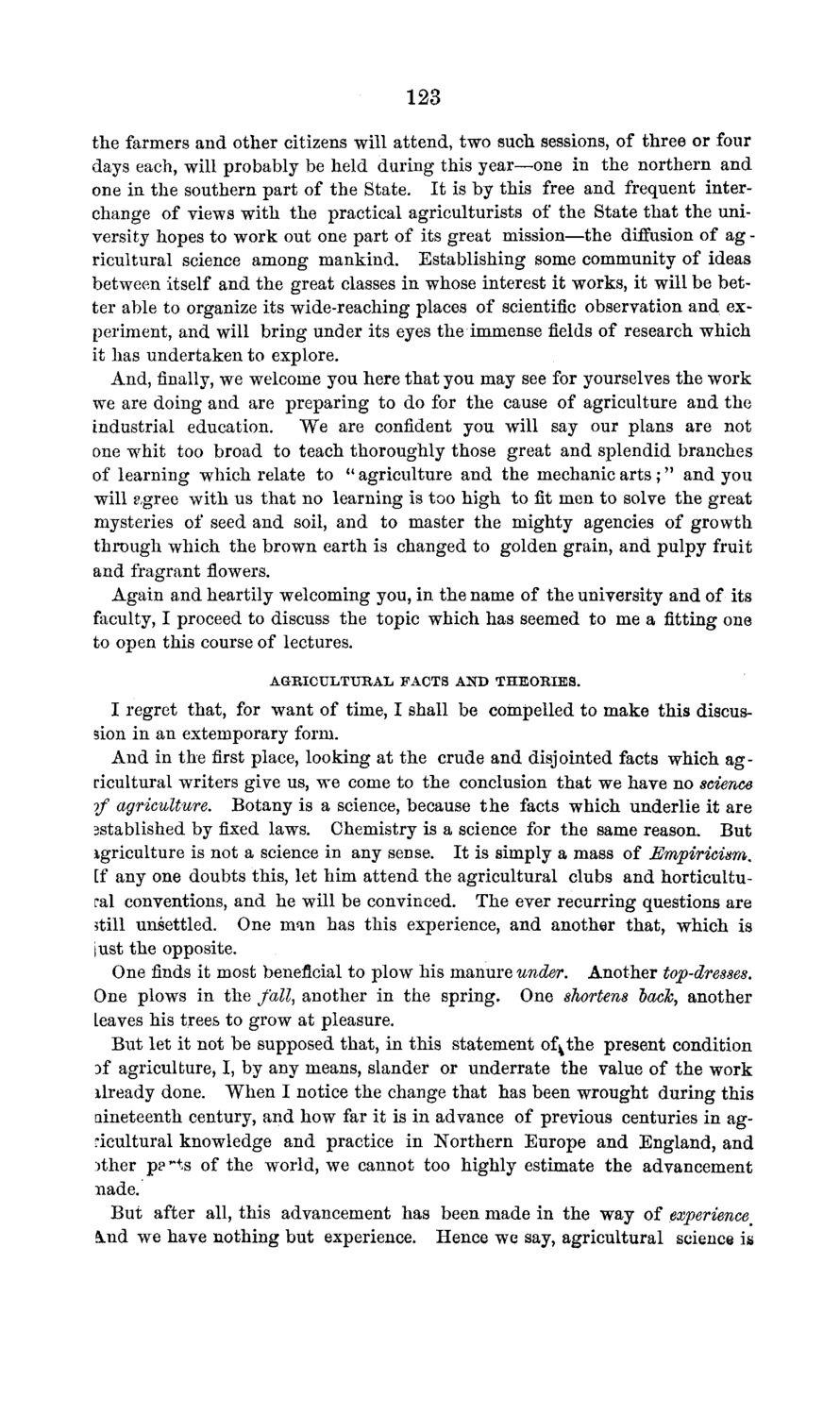| |
| |
Caption: Board of Trustees Minutes - 1869
This is a reduced-resolution page image for fast online browsing.

EXTRACTED TEXT FROM PAGE:
123 the farmers and other citizens will attend, two such sessions, of three or four days each, will probably be held during this year—one in the northern and one in the southern part of the State. It is by this free and frequent interchange of views with the practical agriculturists of the State that the university hopes to work out one part of its great mission—the diffusion of ag ricultural science among mankind. Establishing some community of ideas between itself and the great classes in whose interest it works, it will be better able to organize its wide-reaching places of scientific observation and experiment, and will bring under its eyes the immense fields of research which it has undertaken to explore. And, finally, we welcome you here that you may see for yourselves the work we are doing and are preparing to do for the cause of agriculture and the industrial education. We are confident you will say our plans are not one whit too broad to teach thoroughly those great and splendid branches of learning which relate to "agriculture and the mechanic a r t s ; " and you will &gree with us that no learning is too high to fit men to solve the great mysteries of seed and soil, and to master the mighty agencies of growth through which the brown earth is changed to golden grain, and pulpy fruit and fragrant flowers. Again and heartily welcoming you, in the name of the university and of its faculty, I proceed to discuss the topic which has seemed to me a fitting one to open this course of lectures. AGRICULTURAL FACTS AND THEORIES. I regret that, for want of time, I shall be compelled to make this discussion in an extemporary form. And in the first place, looking at the crude and disjointed facts which agricultural writers give us, we come to the conclusion that we have no science of agriculture. Botany is a science, because the facts which underlie it are sstablished by fixed laws. Chemistry is a science for the same reason. But igriculture is not a science in any sense. It is simply a mass of Empiricism. [f any one doubts this, let him attend the agricultural clubs and horticultural conventions, and he will be convinced. The ever recurring questions are still unsettled. One man has this experience, and another that, which is just the opposite. One finds it most beneficial to plow his manure under. Another top-dresses. One plows in the fall, another in the spring. One shortens lack, another Leaves his trees to grow at pleasure. But let it not be supposed that, in this statement of^the present condition 3f agriculture, I, by any means, slander or underrate the value of the work ilready done. When I notice the change that has been wrought during this nineteenth century, and how far it is in advance of previous centuries in agricultural knowledge and practice in Northern Europe and England, and :>ther pp^ts of the world, we cannot too highly estimate the advancement nade. But after all, this advancement has been made in the way of experience knd we have nothing but experience. Hence we say, agricultural science is
| |